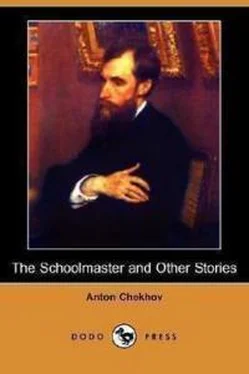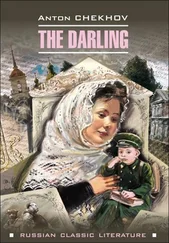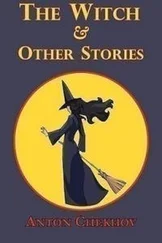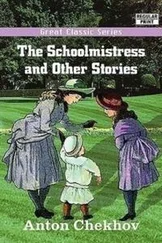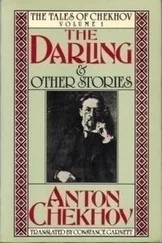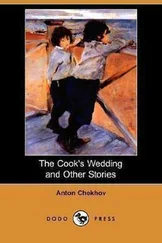"Good–bye, dear Sasha," she thought, and before her mind rose the vista of a new, wide, spacious life, and that life, still obscure and full of mysteries, beckoned her and attracted her.
She went upstairs to her own room to pack, and next morning said good–bye to her family, and full of life and high spirits left the town—as she supposed for ever.
From the Diary of a Violent-tempered Man
I AM a serious person and my mind is of a philosophic bent. My vocation is the study of finance. I am a student of financial law and I have chosen as the subject of my dissertation—the Past and Future of the Dog Licence. I need hardly point out that young ladies, songs, moonlight, and all that sort of silliness are entirely out of my line.
Morning. Ten o'clock. My maman pours me out a cup of coffee. I drink it and go out on the little balcony to set to work on my dissertation. I take a clean sheet of paper, dip the pen into the ink, and write out the title: "The Past and Future of the Dog Licence."
After thinking a little I write: "Historical Survey. We may deduce from some allusions in Herodotus and Xenophon that the origin of the tax on dogs goes back to … ."
But at that point I hear footsteps that strike me as highly suspicious. I look down from the balcony and see below a young lady with a long face and a long waist. Her name, I believe, is Nadenka or Varenka, it really does not matter which. She is looking for something, pretends not to have noticed me, and is humming to herself:
"Dost thou remember that song full of tenderness?"
I read through what I have written and want to continue, but the young lady pretends to have just caught sight of me, and says in a mournful voice:
"Good morning, Nikolay Andreitch. Only fancy what a misfortune I have had! I went for a walk yesterday and lost the little ball off my bracelet!"
I read through once more the opening of my dissertation, I trim up the tail of the letter "g" and mean to go on, but the young lady persists.
"Nikolay Andreitch," she says, "won't you see me home? The Karelins have such a huge dog that I simply daren't pass it alone."
There is no getting out of it. I lay down my pen and go down to her. Nadenka (or Varenka) takes my arm and we set off in the direction of her villa.
When the duty of walking arm–in–arm with a lady falls to my lot, for some reason or other I always feel like a peg with a heavy cloak hanging on it. Nadenka (or Varenka), between ourselves, of an ardent temperament (her grandfather was an Armenian), has a peculiar art of throwing her whole weight on one's arm and clinging to one's side like a leech. And so we walk along.
As we pass the Karelins', I see a huge dog, who reminds me of the dog licence. I think with despair of the work I have begun and sigh.
"What are you sighing for?" asks Nadenka (or Varenka), and heaves a sigh herself.
Here I must digress for a moment to explain that Nadenka or Varenka (now I come to think of it, I believe I have heard her called Mashenka) imagines, I can't guess why, that I am in love with her, and therefore thinks it her duty as a humane person always to look at me with compassion and to soothe my wound with words.
"Listen," said she, stopping. "I know why you are sighing. You are in love, yes; but I beg you for the sake of our friendship to believe that the girl you love has the deepest respect for you. She cannot return your love; but is it her fault that her heart has long been another's?"
Mashenka's nose begins to swell and turn red, her eyes fill with tears: she evidently expects some answer from me, but, fortunately, at this moment we arrive. Mashenka's mamma, a good–natured woman but full of conventional ideas, is sitting on the terrace: glancing at her daughter's agitated face, she looks intently at me and sighs, as though saying to herself: "Ah, these young people! they don't even know how to keep their secrets to themselves!"
On the terrace with her are several young ladies of various colours and a retired officer who is staying in the villa next to ours. He was wounded during the last war in the left temple and the right hip. This unfortunate man is, like myself, proposing to devote the summer to literary work. He is writing the "Memoirs of a Military Man." Like me, he begins his honourable labours every morning, but before he has written more than "I was born in … " some Varenka or Mashenka is sure to appear under his balcony, and the wounded hero is borne off under guard.
All the party sitting on the terrace are engaged in preparing some miserable fruit for jam. I make my bows and am about to beat a retreat, but the young ladies of various colours seize my hat with a squeal and insist on my staying. I sit down. They give me a plate of fruit and a hairpin. I begin taking the seeds out.
The young ladies of various colours talk about men: they say that So–and–So is nice–looking, that So–and–So is handsome but not nice, that somebody else is nice but ugly, and that a fourth would not have been bad–looking if his nose were not like a thimble, and so on.
"And you, Monsieur Nicolas ," says Varenka's mamma, turning to me, "are not handsome, but you are attractive…. There is something about your face…. In men, though, it's not beauty but intelligence that matters," she adds, sighing.
The young ladies sigh, too, and drop their eyes … they agree that the great thing in men is not beauty but intelligence. I steal a glance sideways at a looking–glass to ascertain whether I really am attractive. I see a shaggy head, a bushy beard, moustaches, eyebrows, hair on my cheeks, hair up to my eyes, a perfect thicket with a solid nose sticking up out of it like a watch–tower. Attractive! h'm!
"But it's by the qualities of your soul, after all, that you will make your way, Nicolas ," sighs Nadenka's mamma, as though affirming some secret and original idea of her own.
And Nadenka is sympathetically distressed on my account, but the conviction that a man passionately in love with her is sitting opposite is obviously a source of the greatest enjoyment to her.
When they have done with men, the young ladies begin talking about love. After a long conversation about love, one of the young ladies gets up and goes away. Those that remain begin to pick her to pieces. Everyone agrees that she is stupid, unbearable, ugly, and that one of her shoulder–blades sticks out in a shocking way.
But at last, thank goodness! I see our maid. My maman has sent her to call me in to dinner. Now I can make my escape from this uncongenial company and go back to my work. I get up and make my bows.
Varenka's maman , Varenka herself, and the variegated young ladies surround me, and declare that I cannot possibly go, because I promised yesterday to dine with them and go to the woods to look for mushrooms. I bow and sit down again. My soul is boiling with rage, and I feel that in another moment I may not be able to answer for myself, that there may be an explosion, but gentlemanly feeling and the fear of committing a breach of good manners compels me to obey the ladies. And I obey them.
We sit down to dinner. The wounded officer, whose wound in the temple has affected the muscles of the left cheek, eats as though he had a bit in his mouth. I roll up little balls of bread, think about the dog licence, and, knowing the ungovernable violence of my temper, try to avoid speaking. Nadenka looks at me sympathetically.
Soup, tongue and peas, roast fowl, and compôte. I have no appetite, but eat from politeness.
After dinner, while I am standing alone on the terrace, smoking, Nadenka's mamma comes up to me, presses my hand, and says breathlessly:
"Don't despair, Nicolas! She has such a heart, … such a heart! …"
Читать дальше
